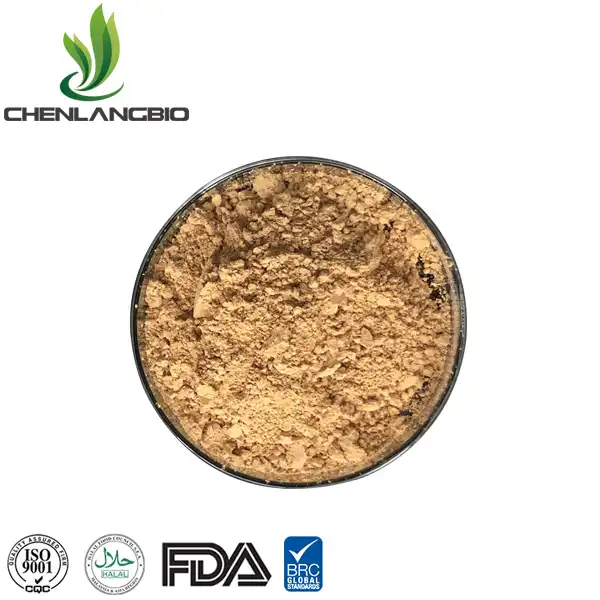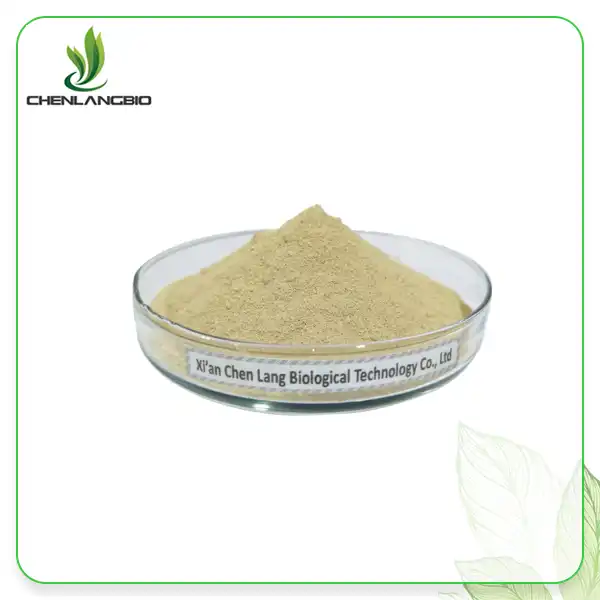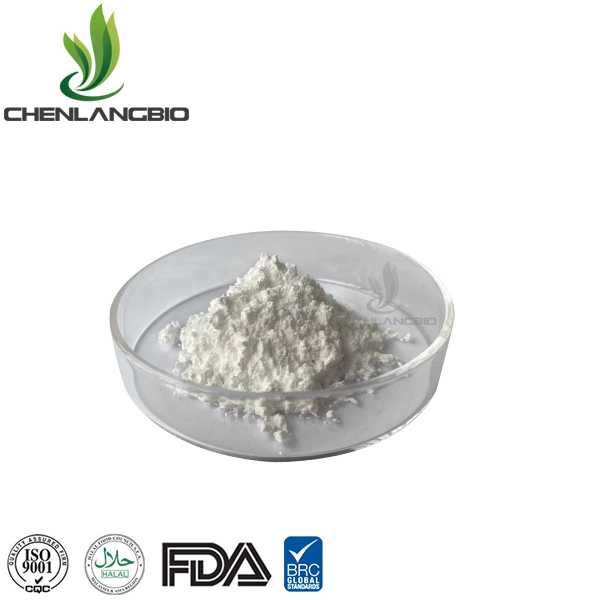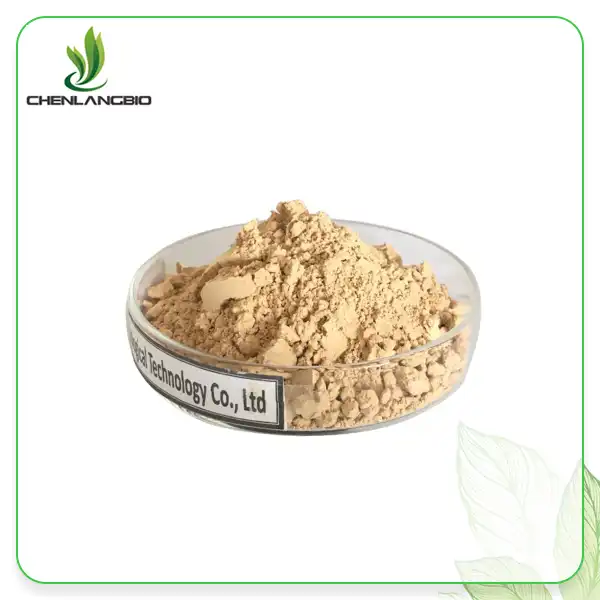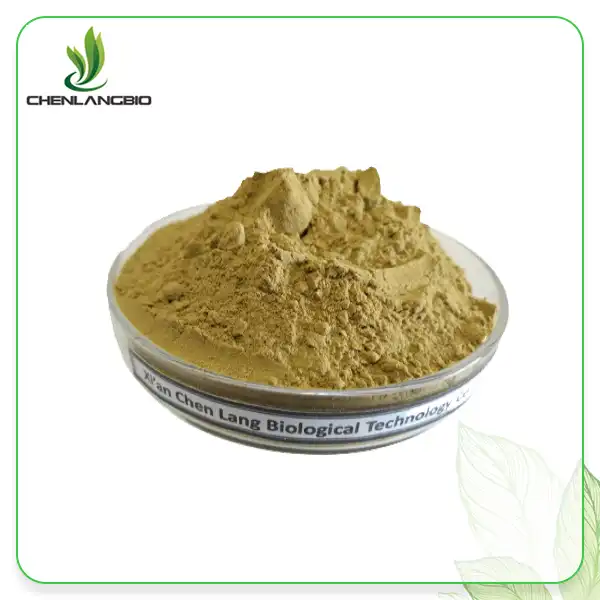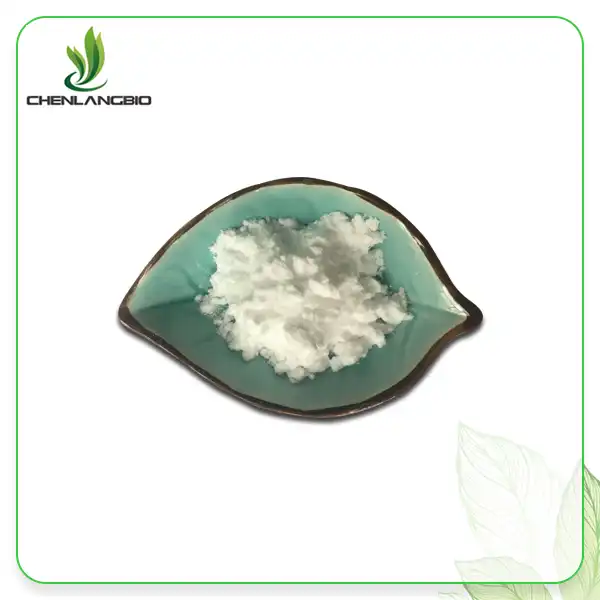Rutecarpine Powder: Benefits, Uses, and Safety
2024-11-14 14:10:38
Rutecarpine powder has been gaining attention in the health and wellness community for its potential benefits. This natural compound, derived from the fruits of Evodia rutaecarpa, has been used in traditional Chinese medicine for centuries. Today, we'll explore the science behind rutecarpine, its potential health benefits, and how to use it safely.
What is Rutecarpine Powder?
Rutecarpine is a quinazolinocarboline alkaloid found in several plants, most notably in the fruits of Evodia rutaecarpa, also known as Wu-Chu-Yu in traditional Chinese medicine. This compound has garnered scientific interest due to its diverse pharmacological activities. The extraction process of rutecarpine involves isolating the compound from the plant material, typically using solvents and purification techniques. The resulting powder is a concentrated form of rutecarpine powder, which can be used in supplements or for research purposes. Rutecarpine's chemical structure allows it to interact with various biological pathways in the body, contributing to its potential health effects. Its ability to cross the blood-brain barrier makes it particularly interesting for neurological applications.
Top Health Benefits of Rutecarpine Powder
Research into rutecarpine has uncovered several potential health benefits. While more studies are needed to fully understand its effects, the current evidence is promising:
Cardiovascular Health
Rutecarpine has shown potential in supporting cardiovascular health. Studies suggest it may help regulate blood pressure by influencing nitric oxide production, which plays a crucial role in vasodilation. This property could be beneficial for individuals with hypertension or those at risk of cardiovascular diseases. Moreover, rutecarpine powder has demonstrated antithrombotic effects in some studies. By inhibiting platelet aggregation, it may help prevent blood clots, potentially reducing the risk of stroke and heart attacks.
Pain Management
One of the most intriguing properties of rutecarpine is its potential analgesic effect. Research indicates that rutecarpine may modulate pain perception by interacting with certain neurotransmitter systems in the body. This could make it a valuable tool in managing chronic pain conditions. The analgesic properties of rutecarpine are thought to be related to its ability to influence vanilloid receptors, which are involved in pain signaling. By modulating these receptors, rutecarpine may help reduce pain sensitivity.
Neuroprotective Effects
Emerging research suggests rutecarpine may have neuroprotective properties. Some studies have shown that it could potentially protect neurons from oxidative stress and inflammation, which are key factors in neurodegenerative diseases. The neuroprotective effects of rutecarpine are thought to be mediated through its antioxidant properties and its ability to modulate certain signaling pathways involved in neuronal survival. This could have implications for conditions such as Alzheimer's disease and Parkinson's disease, though more research is needed in this area.
Anti-inflammatory Properties
Rutecarpine has demonstrated anti-inflammatory effects in several studies. By modulating inflammatory pathways, it may help reduce chronic inflammation, which is associated with numerous health conditions. The anti-inflammatory action of rutecarpine powder is believed to be related to its ability to inhibit certain pro-inflammatory enzymes and cytokines. This property could be beneficial in managing inflammatory conditions such as arthritis or inflammatory bowel disease.
Metabolic Health
Some research suggests that rutecarpine may have positive effects on metabolic health. It has shown potential in improving insulin sensitivity and glucose metabolism in some studies, which could be beneficial for individuals with or at risk of type 2 diabetes. Additionally, rutecarpine has been found to influence lipid metabolism in some animal studies. It may help reduce triglyceride levels and improve cholesterol profiles, though human studies are needed to confirm these effects.
Digestive Health
In traditional Chinese medicine, Evodia fruits containing rutecarpine have been used to treat digestive issues. Modern research has begun to explore the potential gastroprotective effects of rutecarpine. Some studies suggest that rutecarpine may help protect the gastric mucosa from damage and reduce gastric acid secretion. This could potentially be beneficial for individuals with conditions such as gastritis or peptic ulcers, though more research is needed to fully understand these effects.
How to Safely Use Rutecarpine Supplements?
While rutecarpine shows promise in various health applications, it's crucial to approach its use with caution. Here are some guidelines for safe use:
Dosage Considerations
The appropriate dosage of rutecarpine can vary depending on factors such as age, health status, and the specific condition being addressed. Currently, there is no standardized dosage recommendation for rutecarpine supplements due to limited human studies. It's crucial to start with a low dose and gradually increase as tolerated, always under the guidance of a healthcare professional. Some studies have used doses ranging from 10 to 50 mg per day, but these should not be considered as general recommendations.
Potential Side Effects
While rutecarpine is generally considered safe when used appropriately, it can cause side effects in some individuals. These may include:
- Gastrointestinal discomfort
- Headaches
- Dizziness
- Changes in blood pressure
If you experience any adverse effects while taking rutecarpine powder, discontinue use and consult your healthcare provider.
Drug Interactions
Rutecarpine may interact with certain medications. It's known to affect the metabolism of some drugs by influencing cytochrome P450 enzymes. This could potentially alter the effectiveness or side effects of medications.
Particularly, rutecarpine may interact with:
- Blood thinners
- Blood pressure medications
- Diabetes medications
- Certain pain medications
Always inform your healthcare provider about all supplements you're taking, including rutecarpine.
Quality and Purity
When choosing a rutecarpine supplement, it's crucial to select a high-quality product from a reputable manufacturer. Look for supplements that have been third-party tested for purity and potency. Be wary of products that make exaggerated claims or those that don't provide clear information about their sourcing and manufacturing processes.
Who Should Avoid Rutecarpine?
Certain groups should exercise caution or avoid rutecarpine altogether:
- Pregnant or breastfeeding women: There's insufficient data on the safety of rutecarpine during pregnancy or lactation.
- Individuals with bleeding disorders: Due to its potential effects on blood clotting, those with bleeding disorders should consult a doctor before use.
- People with low blood pressure: Rutecarpine may lower blood pressure, which could be problematic for those with already low blood pressure.
- Individuals scheduled for surgery: Rutecarpine should be discontinued at least two weeks before any scheduled surgery due to its potential effects on blood clotting.
Monitoring and Follow-up
If you decide to use rutecarpine supplements, it's important to monitor your response and any potential side effects. Regular check-ups with your healthcare provider can help ensure that the supplement is safe and effective for you. Keep a journal of any changes you notice in your health or symptoms while taking rutecarpine. This information can be valuable for your healthcare provider in assessing the supplement's effects.
Conclusion
Rutecarpine powder offers intriguing potential benefits for various aspects of health, from cardiovascular support to pain management and neuroprotection. However, as with any supplement, it's crucial to approach its use with caution and under professional guidance. While the current research on rutecarpine is promising, more studies, particularly human clinical trials, are needed to fully understand its effects, optimal dosages, and long-term safety profile. As research progresses, we may gain more insights into how to best harness the potential of this fascinating compound. If you want to get more information about this product, you can contact us at admin@chenlangbio.com.
References
1. Wang, L., et al. (2019). "Rutaecarpine: A promising cardiovascular protective alkaloid from Evodia rutaecarpa (Wu Zhu Yu)." Pharmacological Research, 141, 541-550.
2. Zhang, Y., et al. (2018). "Rutaecarpine: A potential neuroprotective agent against neurological diseases." Biomedicine & Pharmacotherapy, 97, 297-306.
3. Liu, X., et al. (2020). "Rutaecarpine and its analogs: Promising anti-inflammatory agents." European Journal of Medicinal Chemistry, 185, 111857.
4. Chen, Z., et al. (2017). "Rutaecarpine: An overview of its potential as a natural product alkaloid." Molecules, 22(7), 1075.
5. Hu, Y., et al. (2021). "Rutaecarpine ameliorates diabetic nephropathy by inhibiting the TLR4/NF-κB pathway." Biomedicine & Pharmacotherapy, 133, 111081.
6. Sheu, J. R., et al. (2020). "Rutaecarpine, a quinazolinocarboline alkaloid, inhibits platelet aggregation and thrombus formation through modulation of VASP signaling." Journal of Functional Foods, 64, 103699.
Send Inquiry
Related Industry Knowledge
- Are There Any Solubility Considerations for Kopyrrol Powder?
- What is Kopexil and How Does it Work for Hair Loss?
- How Should Dimethylmethoxy Chromanyl Palmitate Be Applied
- Does Alpha-GPC Increase Serotonin
- What Are the Macamides in Maca
- How To Take Lufenuron
- What does Garlic Extract Powder Allicin Do to Bacteria
- What is Turkesterone Powder? The Newest Supplement In the Whole Market Improve Immunity
- China Natural Pearl Powder manufacturers for Skin Whitening
- High Quality Troxerutin Powder for Skin



